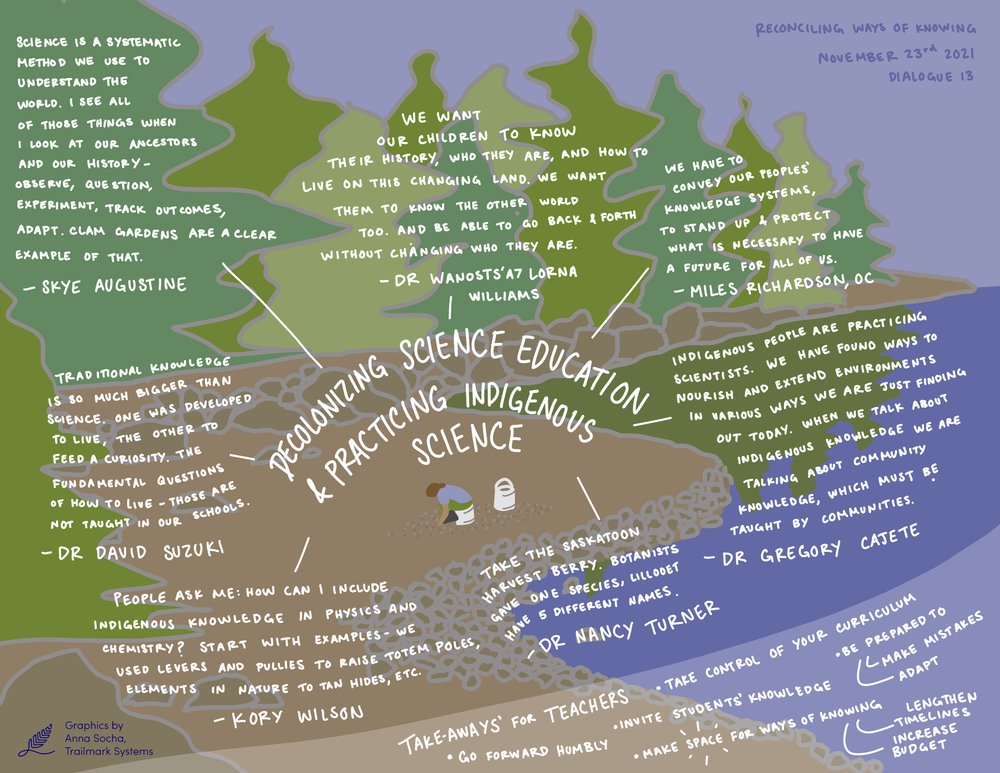The website linked to the image above has a recording of a discussion with three panelists (Dr. Gregory Cajete, Dr. Lorna Wanosts’a7 Williams, and Skye Augustine) about decolonizing science education and practicing indigenous science. If his name sounds familiar, it may be because Dr. Cajete was cited by some of the authors in our module 1 readings. The dialogue is the 13th in a series that were organized by the Reconciling Ways of Knowing Stewardship Society during 2020 and 2021 to continue the conversation about reconciliation despite the pandemic. Each of the panelists has a unique set of experiences to share and helps to broaden our understanding of how to include Indigenous ways of knowing in science and science education.

Hi Jacey, thank you for sharing this resource! The panel discussions and infographic quotes about decolonizing science education helped broaden my perspective towards Indigenous values and practices. I feel like there are often assumptions about how the Indigenous ways of knowing and being just mostly revolve around abstract spirituality. However after also watching the Ted Talk video that is shared below, I find it very important to acknowledge how Indigenous peoples are indeed practicing scientists as they analyze and experiment with the natural conditions and capabilities of our planet. I hope that more of such experiential insights will be respected and used as part of mainstream technical science to balance out the existing political and economical biases in the near future!
TEDx Talks. (2019, July 15). The case to recognise Indigenous knowledge as science | Albert Wiggan | TEDxSydney [Video]. YouTube. https://youtu.be/X5QON5l6zy8
Thank you for sharing that Ted Talk, Janet! Albert Wiggan is a great speaker and the talk left me feeling hopeful and energized.